In signposting these resources, the Leadership Committee of the Council for Congregational Life and Witness is not endorsing all of the ideas or views expressed in them. Leaders need to explore what they consider will work best for their own leadership development as they seek to follow Christ and serve their congregations in various contexts.
Leadership courses to run in the congregation
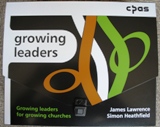 ‘Growing Leaders’ course from CPAS
‘Growing Leaders’ course from CPAS
‘Growing Leaders’ is a course for anyone in church leadership which is run over one year. A youth version is also available.
For more details see: http://www.cpas.org.uk/church-resources/growing-leaders-suite/growing-leaders
 'Mentoring matters' from CPAS
'Mentoring matters' from CPAS
The CPAS website describes this as: ‘An easy-to-use pack with everything you need to start a church-based mentoring network: identifying, equipping and resourcing mentors’.
For more details see: http://www.cpas.org.uk/church-resources/mentoring-matters/#.V_9q9U2V670
Leadership books
There are a vast number of books available on leadership, both Christian and secular. The following are suggested because they bring a particularly insightful perspective which may be helpful in leadership development.
General
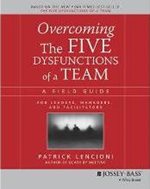 Overcoming the Five Dysfunctions of a Team
Overcoming the Five Dysfunctions of a Team
by Patrick Lencioni
This book gives valuable insights into team work addressing the ‘five dysfunctions of a team’ which are: ‘absence of trust, fear of conflict, lack of commitment, avoidance of accountability and inattention to results’.
It is not written specifically for church leadership but the insights into working as a team in any context are helpful.
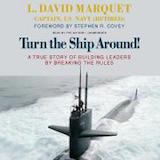 Turn the Ship Around: A True Story of Turning Followers into Leaders
Turn the Ship Around: A True Story of Turning Followers into Leaders
by David Marquet
This fascinating story by a submarine captain draws out valuable leadership lessons on how to create leaders rather than simply followers.
The principles in the book are especially applicable in the church for leaders who lead other leaders (for example, for a Sunday school coordinator or a minister with small group leaders).
The principles are also applicable for any church leader because all church members should be equipped to serve in a reflective way, rather than as unthinking followers of instructions like the sailors on the submarine were before Captain Marquet changed the culture.
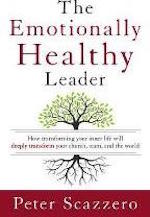 The Emotionally Healthy Leader
The Emotionally Healthy Leader
by Peter Scazzero
This book helps church leaders think about their ‘emotional intelligence’ from a spiritual point of view.
It provides useful insights into understanding ourselves and others and especially into what might lead us astray from God’s will and purpose.
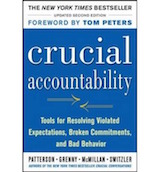 Crucial Accountability
Crucial Accountability
by Kerry Patterson, Joseph Grenny, David Maxfield, Ron McMillan and Al Switzler
Having difficult conversations about accountability is one of the most challenging tasks of a leader – this book provides some helpful guidance.
It is a secular book but the principles are not contrary to a biblical approach and they provide help for Christian leaders to wisely and gently confront people who need to be held accountable.
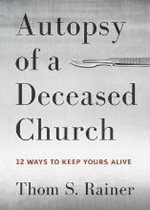 Autopsy of a Deceased Church
Autopsy of a Deceased Church
by Thom S. Rainer
This book is stark reading, but Thom Rainer’s research and insights provide strong motivation and help for leading a congregation which is in slow or even rapid decline in the hope that it will not end up deceased.
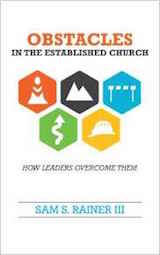 Obstacles in the Established Church
Obstacles in the Established Church
by Sam S. Rainer
This book is written from the experience of a pastor who has stuck at bringing about change in an established church.
It contains helpful insights into how to lead people who tend to resist change.
Ground breaking books
The following are some books on church leadership considered to be instrumental in changing church culture through re-discovering biblical truth and applying it to today’s cultural context. They are worth reading for anyone in church leadership.
 The Trellis and the Vine
The Trellis and the Vine
by Colin Marshall and Tony Payne
This book presents the concept that the trellis refers to the structures in church (finance, property, meetings, etc.) and the vine refers to people. The trellis is necessary but often takes over from the core work of growing people.
Various shifts in thinking are covered including: ‘from using people to growing people, ‘from filling gaps to training new workers’ and ‘from running events to training people’. The book presents the key to this as ministers being neither chaplains nor CEO’s but equippers of the congregation – requiring a change in the way ministers, other leaders and the congregation think about church.
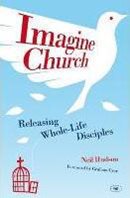 Imagine Church
Imagine Church
by Neil Hudson
This book challenges the unwritten ‘pastoral contract’ the congregation have with the minister and gives a vision of a church filled with ‘whole life disciples’ who engage in mission wherever they are. It gives practical steps to transform congregations for this vision.
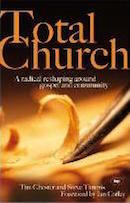 Total Church
Total Church
by Tim Chester and Steve Timmis
This book challenges readers to consider the church community and the way in which God works through the community of believers for pastoral care, discipleship and evangelism. It provides a useful biblical corrective against rampant individualism.
Books specifically for elders
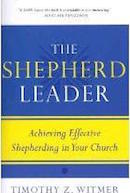
The Shepherd Leader
by Timothy Witmer
This is a very practical and inspiring book on the role of an elder as a shepherd of God’s people. Following an interesting account of the history of Presbyterian eldership, the rest of the book outlines the practicalities of the role under the headings of knowing, feeding, leading and protecting the flock.
Some of the application will be more directly useful for the elders’ district model of pastoral care but the general principles are applicable no matter what model of pastoral care is in place in the congregation. Timothy Witmer is Professor of Practical Theology at Westminster Theological Seminary.
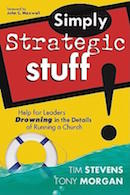 Simply Strategic Stuff
Simply Strategic Stuff
by Tim Stevens and Tony Morgan
This book contains 99 short chapters on ways to more effectively lead the congregation. Some chapters will not apply to every congregation but some could be very useful like ‘Visit other churches and steal their stuff’ (their ideas that is!) or ‘It’s easier to tame the lions than prod the turtles’ (channel enthusiasm rather than waste energy on apathy) or ‘People give to changed lives’ (people give money to projects that make a difference). There are some especially useful chapters for congregations with building projects or staff teams.
Technical books – for those who relish reading in more depth
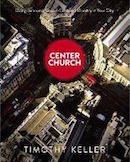 Center Church
Center Church
by Timothy Keller
This lengthy book brilliantly explains the gospel and contextualisation for mission. Written for an urban American context it nevertheless explains principles that apply anywhere.
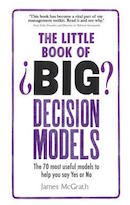 The Little Book of Big Decision Models
The Little Book of Big Decision Models
by James McGrath
This secular book contains 70 models for decision making. Many of the concepts contain wisdom for Kirk Session meetings or other leadership teams in church life as well as for individual leadership decision making. It obviously doesn’t include seeking God’s will but a little thought will show how that can be done through prayerful consideration of using the models in the book.
Leadership website/blogs
http://thomrainer.com/
This blog provides daily useful insights based on extensive research into many aspects of church leadership for ministers and elders.
https://ericgeiger.com/blog/
A useful blog for anyone in leadership in the church.
http://9marks.org/leadership/
A leadership website with useful articles for elders and ministers.
www.john-truscott.co.uk/Resources/Leadership
A UK based website with articles on leadership and especially on church administration. For congregations considering employing a church administrator this is a vital website to consult.